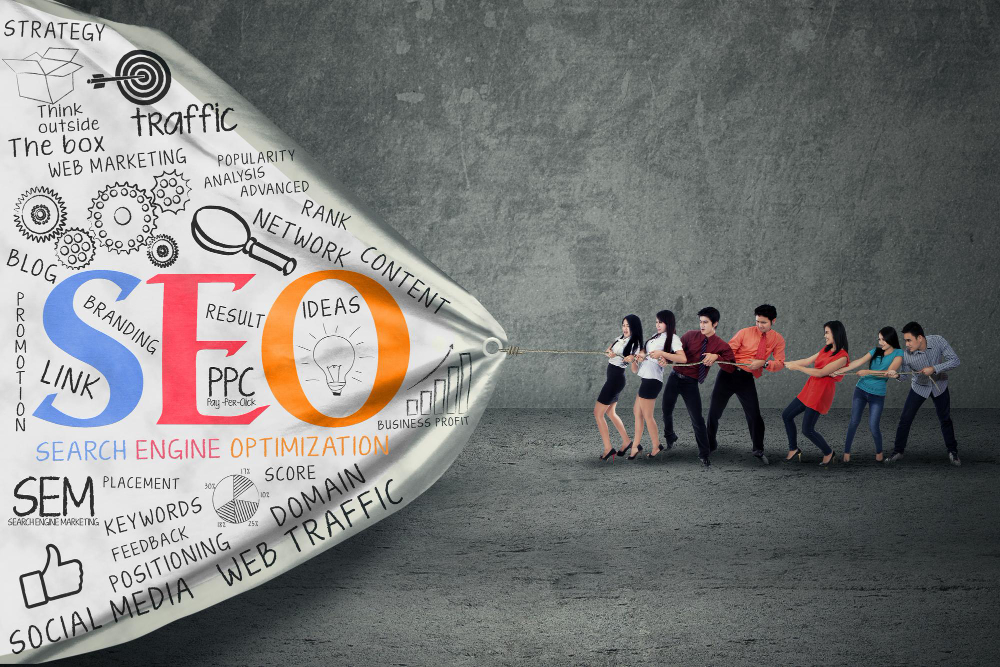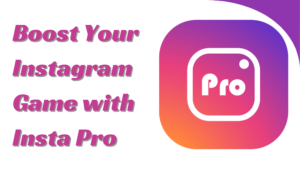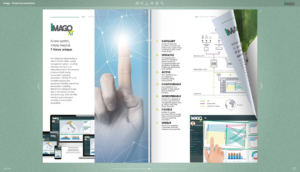SEO Funnels and Their Importance in 2024
- 1 What Are SEO Funnels?
- 2 Stages of an SEO Funnel
- 2.1 1. Awareness
- 2.2 2. Consideration
- 2.3 3. Conversion
- 3 Importance of SEO Funnels in 2024
- 3.1 Enhanced Personalization
- 3.2 Voice Search Optimization
- 3.3 AI and Machine Learning
- 3.4 Mobile-First Indexing
- 3.5 Content Quality and E-A-T
- 3.6 Data-Driven Strategies
- 3.7 Competitive Advantage
- 4 Implementation Tips for SEO Funnels in 2024
- 5 Conclusion
2024 presents new challenges and opportunities for marketers striving to enhance their online presence. One of the key strategies gaining prominence is the concept of SEO funnels. These funnels are strategic frameworks that guide potential customers through various journey stages using search engine optimization techniques. Understanding and implementing SEO funnels effectively becomes crucial for businesses as user behavior becomes more complex. This article delves into the intricacies of SEO funnels and their importance in 2024.
What Are SEO Funnels?
SEO funnels represent a potential customer’s stages, from discovering your brand to purchasing. They align closely with the traditional marketing funnel but are tailored to leverage search engine optimization to guide users through:
- Awareness
- Consideration
- Conversion
Each stage of the SEO funnel plays a vital role in shaping the user’s journey and requires different SEO strategies to maximize effectiveness.
Stages of an SEO Funnel
1. Awareness
Objective: Capture the attention of potential customers unaware of your brand or services.
SEO Tactics:
- Broad Keywords: Use general keywords related to your industry to attract a broad audience. For instance, a company selling eco-friendly products might target keywords like “sustainable living tips” or “eco-friendly practices.”
- Educational Content: Create high-quality, informative blog posts, articles, and infographics that provide value and answer common questions. Content like “How to Reduce Your Carbon Footprint” can attract users interested in sustainability.
- Social Media Presence: Engage with users on social media platforms by sharing informative content and participating in discussions. Social signals can indirectly boost SEO by driving traffic and increasing brand visibility.
Importance: The awareness stage is crucial as it lays the foundation for brand recognition. Attracting users at this stage increases their chances of engaging with your content and considering your brand a potential solution to their needs.
2. Consideration
Objective: Engage and educate users by comparing solutions and considering their options.
SEO Tactics:
- Long-Tail Keywords: Target more specific queries that reflect the user’s intent. A company might use keywords like “best eco-friendly household products” or “top sustainable brands in 2024.”
- Product Comparisons and Reviews: Create detailed comparison guides, product reviews, and case studies to help users evaluate their options. For example, “Comparing Eco-Friendly Cleaning Products: A 2024 Review.”
- How-To Guides and Tutorials: Offer in-depth guides that help users understand how to solve their problems or use products effectively. Titles like “How to Create a Sustainable Home: A Step-by-Step Guide” can be effective.
Importance: Engaging users at the consideration stage builds trust and positions your brand as an authority. Providing valuable content that addresses specific pain points can influence user decisions, moving them closer to conversion.
3. Conversion
Objective: Convert leads into customers by persuading them to make a purchase or take a desired action.
SEO Tactics:
- Transactional Keywords: Optimize for keywords that indicate a readiness to purchase, such as “buy eco-friendly cleaning products” or “best price for sustainable goods.”
- Optimized Landing Pages: Create compelling landing pages with strong calls to action (CTAs), clear value propositions, and persuasive copy. Ensure these pages are fast-loading and mobile-friendly.
- User-Generated Content: Leverage testimonials, reviews, and case studies to build credibility. Featuring customer success stories can reassure potential buyers.
Importance: Effective SEO at this stage ensures that your website is optimized for conversions. A seamless and persuasive user experience can lead to higher sales and stronger customer loyalty.
Importance of SEO Funnels in 2024

Enhanced Personalization
In 2024, personalization remains a top priority for users who expect relevant and customized experiences. SEO funnels allow marketers to deliver tailored content at each stage of the buyer’s journey, meeting users’ specific needs and queries. Personalization can significantly improve user engagement and satisfaction.
Key Strategies:
- Dynamic Content: Use dynamic content that changes based on user behavior and preferences. Personalized recommendations based on previous interactions can enhance the user experience.
- Segmentation: Segment your audience based on behavior, demographics, and interests to deliver more targeted content. For instance, eco-conscious consumers may prefer content about sustainable living practices, while budget-conscious users might seek information on affordable eco-friendly products.
Voice Search Optimization
The rise of voice search continues to influence SEO strategies. Users increasingly use voice-activated devices to search for information, and these queries tend to be more conversational and specific. SEO funnels help target these natural language queries effectively at different customer journey stages.
Key Strategies:
- Natural Language Keywords: Optimize content for conversational queries and questions. Use tools to identify common voice search phrases related to your industry.
- FAQ Pages: Create comprehensive FAQ pages that address common questions. These can be particularly effective for capturing voice search traffic.
AI and Machine Learning
Advanced algorithms in search engines are increasingly adept at understanding user intent. 2024 SEO strategies must align with user intent to improve rankings and engagement. SEO funnels incorporating AI and machine learning can deliver precise and relevant content.
Regarding niche industries, SEO for real estate agents also benefits significantly from these advancements, ensuring targeted and effective reach.
Key Strategies:
- Behavioral Analysis: Use AI tools to analyze user behavior and predict intent. This can help create content that resonates with users at different stages of the funnel.
- Content Optimization: Leverage AI-driven tools to optimize content for search engines and user engagement. These tools can provide insights into keyword usage, readability, and overall content effectiveness.
Mobile-First Indexing
With mobile searches dominating the digital landscape, SEO funnels must be optimized for mobile users. Ensuring a seamless mobile experience across the funnel stages is vital for retaining and converting users.
Key Strategies:
- Responsive Design: Ensure your website is fully responsive and offers a consistent experience across all devices. Test your site on various screen sizes and resolutions.
- Mobile-Specific Content: Create content that caters to mobile users, such as short, concise articles and easily navigable pages. Consider the mobile user’s context and design content accordingly.
Content Quality and E-A-T
Google’s emphasis on Expertise, Authoritativeness, and Trustworthiness (E-A-T) means that high-quality, credible content is essential. An SEO funnel helps maintain content quality and relevance throughout the user journey, ensuring users receive valuable information at every stage.
Key Strategies:
- Authoritative Content: Publish content written by experts in your field and ensure that it is well-researched and informative. Cite credible sources and provide accurate information.
- Regular Updates: Keep your content up-to-date to maintain its relevance and accuracy. Regularly review and refresh older content to reflect the latest trends and information.
Data-Driven Strategies
In 2024, leveraging analytics to understand user behavior and refine SEO strategies is more critical than ever. SEO funnels provide a structured approach to track and analyze performance at each stage, allowing for continuous optimization.
Key Strategies:
- Analytics Tools: Use tools like Google Analytics, SEMrush, and Ahrefs to monitor traffic, user engagement, and conversion rates. Analyze data to identify patterns and areas for improvement.
- A/B Testing: Conduct A/B testing on landing pages, CTAs, and content formats to determine what resonates best with your audience. Use the insights to optimize your SEO funnel.
Competitive Advantage
As competition in digital marketing intensifies, a well-defined SEO funnel can give brands an edge by efficiently guiding users from awareness to conversion. A strategic approach to SEO can result in higher engagement and conversion rates, making your brand stand out in a crowded market.
Key Strategies:
- Competitor Analysis: Regularly analyze your competitors’ SEO strategies to identify gaps and opportunities. Use tools to track their keywords, backlinks, and content performance.
- Innovative Content: Stay ahead by creating unique and creative content that sets your brand apart. Experiment with different formats like videos, interactive content, and podcasts.
Implementation Tips for SEO Funnels in 2024
To effectively implement SEO funnels in 2024, consider the following tips:
- Keyword Research: Continuously update your keyword research to align with current trends and user behavior. Use tools to discover emerging keywords and adapt your content strategy accordingly.
- Content Creation: Develop high-quality, engaging content for each funnel stage. Focus on addressing user needs and providing value. Consider using multimedia elements to enhance content engagement.
- Technical SEO: Ensure your website is optimized for speed, mobile-friendliness, and security. Regularly audit your site for technical issues and resolve them promptly.
- User Experience (UX): Create a seamless and intuitive user experience across all devices. Simplify navigation, reduce page load times, and ensure your site is easy to use.
- Analytics and Feedback: Regularly analyze performance metrics and gather user feedback to refine your strategies. Use the insights to make data-driven decisions and continuously improve your SEO funnel.
Conclusion
In 2024, SEO funnels will be indispensable tools for guiding users through their buying journey. By aligning SEO strategies with user intent and optimizing content for each funnel stage, businesses can enhance their online presence, improve engagement, and increase conversion rates. Embracing personalization, leveraging AI, and focusing on mobile-first and high-quality content is crucial to staying competitive in the dynamic digital landscape. As user behavior evolves, a well-executed SEO funnel will remain a critical component of successful digital marketing strategies.

















